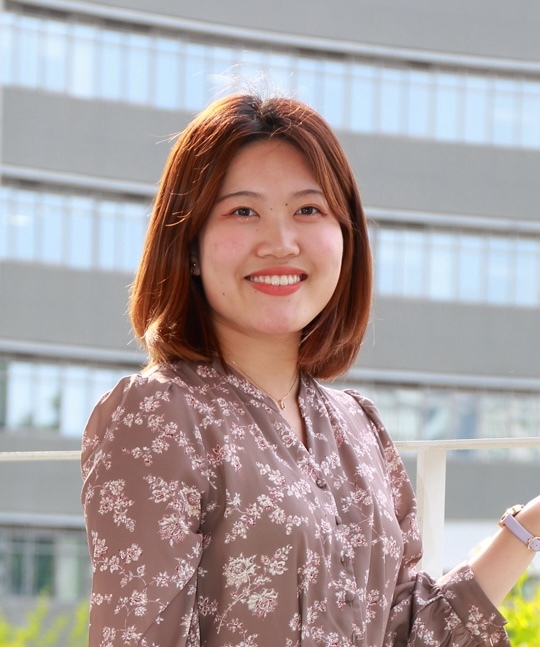Q&A with TOMODACHI Program Participants and TOMODACHI Alumni: Kotomi Ideishi

We conducted an interview survey with Kotomi Ideishi, a first-year master’s student majoring in Social Psychology at Utrecht University in the Netherlands. Since Ms. Ideishi is originally from Kagoshima and Fukuoka Prefectures, she played as a Core Committee Member for TOMODACHI Regional Framework for the Kyushu area. Additionally, because of her interest in “gender issues,” she participated in the TOMODACHI MetLife Women’s Leadership Program.
What motivated you to participate in the TOMODACHI MetLife Women’s Leadership Program?
I participated in this program during the COVID-19 pandemic. I had entered university with many things I wanted to do, but many of them were canceled due to COVID-19. Additionally, at the time of enrollment, I was considering studying abroad, but there was a possibility that I wouldn’t be able to go. However, instead of lamenting what I couldn’t do because of COVID, I decided to focus on the things I could do.
So, I started participating in online events that I could join and events that offered the possibility of studying abroad. The TOMODACHI MetLife Women’s Leadership Program was one of these online events. It provided me with valuable opportunities to interact with members and hear inspiring stories. I also participated to improve my leadership skills and English proficiency.
Can you share the content of the TOMODACHI MetLife Women’s Leadership Program?
One of the most memorable aspects of the TOMODACHI MetLife Women’s Leadership Program was the mentorship system. After taking a psychological test for about an hour, they connected me with a mentor whose personality was the opposite of mine. I met with this mentor once a month and participated in TOMODACHI events together, discussing various topics. I also attended lectures on “leadership” and had the opportunity to discuss in English what I thought about leadership and how to apply it in action. It was a very interesting and unique experience.
Can you give a specific example of what you learned in the TOMODACHI MetLife Women’s Leadership Program?
During the COVID-19 pandemic, I was in a bit of a rush. While I was at Kyushu University, I had this strong feeling that I wanted to do everything possible. Even when I wasn’t feeling well or wasn’t motivated, I pushed myself to go out and do things. I applied for various programs and events, even though I didn’t have the capacity for everything, and I was desperately trying to keep up. While pushing yourself is good, I realized that I wasn’t taking the time to internalize my experiences. My mentor, on the other hand, always took time to reflect on what she had experienced. She would take time to think deeply about what new perspectives she had gained and what she should do next. I learned from her the importance of taking time to reflect on my own thoughts and experiences, and writing them down in a diary to understand my purpose and direction better.
Can you tell us about your experience as a Core Committee Member for Kyushu?
Being a Core Committee Member was a lot of fun. I especially enjoyed planning and organizing events that brought together TOMODACHI alumni. The participants in TOMODACHI are very active and interesting, many of them having studied abroad. In particular, there were many who had studied in the U.S. I enjoyed sharing my experiences and hearing theirs as well.
What does TOMODACHI mean to you?
TOMODACHI provides opportunities for “courage” and “connection.” The empowerment and encouragement I felt during the TOMODACHI MetLife Women’s Leadership Program still resonate with me today. And as for “connections,” I reconnected with someone I had met three years ago during a TOMODACHI Zoom event at an event hosted by the Korean Consulate. The deep connection between me and my mentor was also made possible through TOMODACHI, so it has been a very important part of my life.
Have there been any moments when you inspired others?
Yes, as a Core Committee Member and during the summit, some of my Instagram followers reached out, saying, “I became interested because of your posts,” or “I want to participate too.” I’ve also had people from my high school tell me that they hadn’t considered studying abroad, but after learning about TOMODACHI, they started thinking about it. So, in that sense, I think I was able to inspire others.
Can you share your dreams for the future?
My passion is to uncover the psychological mechanisms behind gender discrimination. I want to study what psychological processes lead to gender discrimination and what systems or laws can create a society where discrimination is less likely to occur. I hope my research can contribute to governments or organizations like NPOs.
What changes do you hope to see regarding gender issues in the future?
Since my area of research focuses on “resistance to gender equality,” I want to explore how we can solve backlash and resistance. I hope to contribute to building a society where everyone, regardless of gender, can make their own decisions.
Do you have any advice for those considering studying abroad?
I also wanted to study abroad, but I didn’t have the courage when I was in junior high and high school. Before participating in TOMODACHI events, I was really anxious and unsure if I could actually do it. However, I would recommend just trying things out. I built confidence by applying for many scholarships and participating in as many events as I could. I gained more courage from taking small steps, and TOMODACHI helped me make connections.
This interview was conducted by Aiko Ishii Casas on October 7, 2024. Currently, Aiko Casas-Ishii is an intern with the TOMODACHI program.


